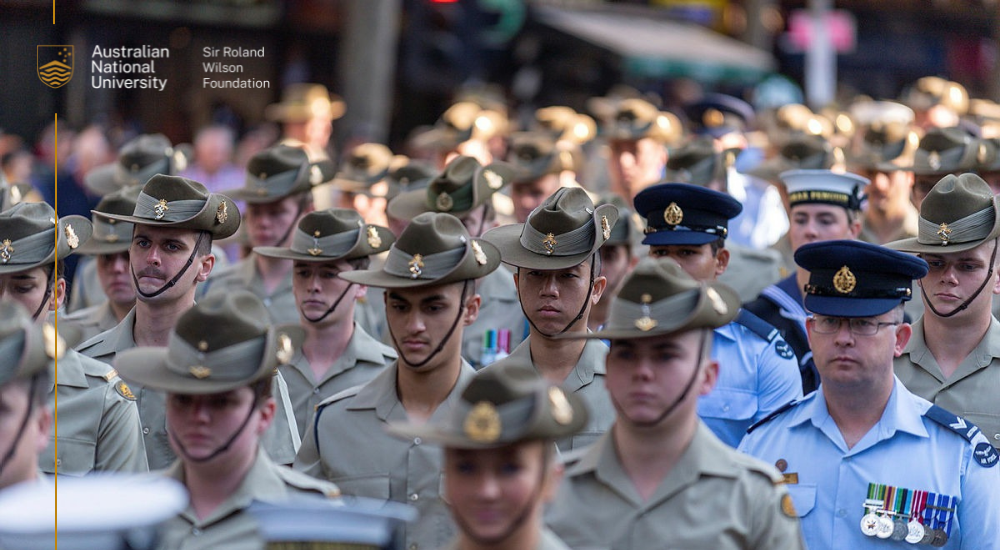Looking after the Australian Defence Force

Every year, one in five serving members of the Australian Defence Force (ADF) experiences poor mental health.
In the five years after leaving the ADF, that number increases to one in two.
“Looking after Australian Defence Force members, reservists and veterans is a huge priority for the Australian Government, particularly Department of Defence,” Sir Roland Wilson alumna Dr Helen Benassi says.
Dr Benassi investigated mental health help-seeking beliefs and behaviours in the Australian Defence Force as part of her PhD research.
Dr Benassi’s research has been influential in the way Defence considers stigma surrounding mental health service use, and has prompted further discussions and research with ADF members, families and healthcare providers.
“My research was used to support the development of a mobile app purpose-built for the Defence community. The app delivers mental health and wellbeing resources directly to ADF members and Defence families, and is designed to empower the user in managing their mental health and seeking support when needed.”
The research has also been used by ex-service organisations and veteran mental health and wellbeing providers, and was tabled last year at the Royal Commission into Defence and Veteran Suicide.
Dr Benassi’s research examined how people accessed e-mental health services, or mental health services provided electronically – such as over the phone or online. She feels that these services can help bridge the gap for members seeking help while they transition from active service to the Reserves or leave the ADF.
As part of her research, Dr Benassi analysed survey data from 11,500 current and former ADF members who had left the Defence Force between 2010 and 2015. Just over half of those with a potential mental health condition had accessed care.
“Around half of those who experience poor mental health won’t see a professional. Many people do not perceive that they need the support, or they feel that their illness is not ‘bad enough’. There is also a stigma surrounding poor mental health in the Defence Force, as your employment is linked to your health. But this can also affect the way people see themselves when they struggle with their own mental health.
“Stoicism is also a big thing in Defence. There is a culture of enduring without complaining which can sometimes be mistaken for resilience. ADF members who were highly self-reliant were more likely to view their mental health challenges negatively and less likely to seek any kind of help – including from family and friends.”
The good news is that if you experience poor mental health and seek treatment early, you are more likely to experience a good outcome.
“If you delay treatment, things become more complicated. Your illness could start to impact on your ability to do your job, or impact on your personal relationships, and this in turn can make managing your illness more complex.”
Dr Benassi found that when people sought help, they were more likely to do so in person. But amongst those that did access e-mental health services, younger people were less likely to access services over the phone and more likely to seek support online.
“The research highlighted a huge opportunity for Defence to better promote e-mental health services in a more targeted way to those most at risk in the Defence community,” Dr Benassi said.
If you or someone you know needs support, contact:
- Lifeline 13 11 14 or lifeline.org.au
- Beyond Blue 1300 224 636 or beyondblue.org.au
- ADF Mental Health Services
Read more about the Sir Roland Wilson Foundation. Stay up to date by following us on Facebook, Twitter and LinkedIn.




